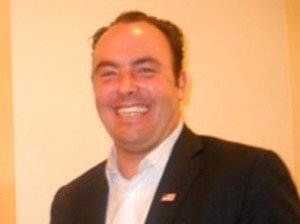- How Uber will Redefine Healthcare (realclearhealth.com)
I’ll respectfully disagree: Healthcare "Ubers" are already proliferating and will ultimately reshape 21st-century medicine. The more aspects of healthcare we can shift from relationship to transaction, the better life will be for patients and doctors alike..."Uber for X, Y or Z" means "making something easy and convenient." But Uber is also about safety, reliability, and civility...Uber’s true essence is this: It accumulates a vast amount of information on the micro-details of cities; overlays that information with real-time data on prospective drivers, riders, and road conditions; reduces staggeringly complex decision trees to algorithms; and instantly presents drivers with a manageable number of highly intuitive options. It thus obliterates the learning curves and fixed costs that such information previously demanded...Uber establishes, digitizes, and stores relationships to make transactions possible...To shift some (not all) of healthcare from relationship to transaction, we’ll have to imitate what Uber did: Accumulate vast databases of population health care information. Develop better and more comprehensive telemetry for real-time tracking. Apply artificial intelligence to discern patterns no intuitive physician can see and to narrow down treatment options. And package this information for instant comprehension by patients and providers...some aspects of healthcare will be impervious to Uber-like innovation...As we convert more and more of medicine to transactions—and we will—patients will find it easier to tend to their health, and doctors will find themselves freer to focus on those areas where relationships are truly irreplaceable...
- Jean Coutu launches Rx image transmission service (chaindrugreview.com)
Jean Coutu Group has introduced an image transmission service for new prescriptions that’s designed to make it easier for patients to fill medications...The Canadian drug chain said...that the new service is accessed via the Jean Coutu mobile application. To use the service, patients open their Health Record in the app and then take a photo of their prescription. The image is then sent directly to their Jean Coutu pharmacy. When the medication is ready for pickup, the pharmacy sends a text message to the patient...the image transmission service is a time-saver for both patients and their pharmacists. Prescriptions can be sent to the pharmacy as soon as patients get them from their doctors, and pharmacists can prepare the medications in advance...Besides the new prescription image transmission service, the Health Record also enables users to complete a simultaneous request for prescription renewals for one or more family members; receive an "it’s ready" notification via email or text when prescriptions are available for pickup...and scan a prescription label to request a refill.
- Bass associate accuses PTO officials of bias against their pharma patent crusade (fiercepharma.com)
Hedge funder Kyle Bass and his Coalition for Affordable Drugs has been somewhat successful at using a new type of patent challenge to push review of "questionable" drug patents. But Bass' partner in that effort now says he doesn't trust the Patent & Trademark Office to be impartial in making those decisions...Erich Spangenberg, in an article at IPWatchdog, says PTO chief Michelle Lee and her staff have favored pharma since Bass announced last year that he and his group would target pharma patents via the inter partes review process...according to the documents, Lee and other PTO officials sat down with the industry association BIO...Bass and Spangenberg themselves called and emailed repeatedly to request a similar meeting, and they're still waiting... It's an outrage that Ms. Lee is showing incredible bias by granting meetings to the people that are gouging American patients, consumers and taxpayers and denying the same access to the people who are attempting to end this abuse...Some analysts have criticized the coalition for targeting inconsequential patents that aren't likely to change the length of a company's monopoly hold on the market, while profiting from shorting the shares of the same company. In a PTO filing, the coalition has acknowledged that Bass and his group don't have altruistic motives, but maintains that his profit motives "do not change the social value of his activities."...
- Standardizing Patient Outcomes Measurement (nejm.org)
The arc of history is increasingly clear: health care is shifting focus from the volume of services delivered to the value created for patients, with "value" defined as the outcomes achieved relative to the costs...But progress has been slow and halting, partly because measurement of outcomes that matter to patients, aside from survival, remains limited. And for many conditions, death is a rare outcome whose measurement fails to differentiate excellent from merely competent providers. Experience in other fields suggests that systematic outcomes measurement is the sine qua non of value improvement. It is also essential to all true value-based reimbursement models being discussed or implemented in health care. The lack of outcomes measurement has slowed down reimbursement reform and led to hesitancy among health care providers to embrace accountability for results...The International Consortium for Health Outcomes Measurement has convened groups of experts on specific conditions, together with patient representatives, to outline minimum standard outcome sets and risk factors using a structured process...ICHOM has approved or is in the final stages of approval of more than 20 sets covering about 45% of disease burden in the United States...These standards are putting providers, payers, patients, and information technology vendors on a common path for tracking what needs to be tracked, making implementation of outcomes measurement easier and more efficient.
- 70 Groups Call on FDA to Revert Back to Meaningful Suffixes for Biosimilar Names (raps.org)
The fight over how biosimilars should be named in the US isn’t over yet despite the Food and Drug Administration’s use of a non-proprietary name with a random suffix for the second approved biosimilar and plans to do the same for all future biosimilars...The group of nonprofits and other stakeholders, spearheaded by the Alliance for Safe Biologics, requested in a letter that FDA use meaningful suffixes for biosimilar non-proprietary names, such as the one used with the first biosimilar approval for Zarxio (filgrastim-sndz). The group said meaningful suffixes are preferable to the random suffixes described in the FDA’s draft guidance on biosimilar naming...In that draft guidance, FDA said the meaningless suffixes will help prevent inadvertent substitution (which could lead to medication errors) of biologics that are not determined to be interchangeable by the FDA..."Meaningful suffixes are easier for patients, providers and pharmacists to both recognize and remember, thus facilitating accurate association between adverse events and specific products."
- Drug diversion: Collaboration is key to detection, control (drugtopics.modernmedicine.com)
Diversion of controlled substances in the hospital setting can be detected with relative ease using current auditing software. But to confirm and correct diversion calls for close collaboration between pharmacy and nursing...The risks of diversions are not only to our patients, but to our employees and our institutions...Detecting diversion and addressing the problem calls for a collaborative process, with buy-in and investment from all stakeholders. Diversion is not just a pharmacy issue...Uncovering drug diversion clearly needs nursing support...the cost of diversion is more than just the dollar value. There is the erosion of reputation. The perception that diversion is easy at an institution is likely to lead to greater diversion...
- Collaborative Practice Agreements Open Opportunities, Liabilities for Pharmacists (pharmacytimes.com)AMCP - Where We Stand - Collaborative Drug Therapy Management (amcp.org)
...48 states and the District of Columbia, pharmacists’ scope of practice allows for collaborative practice agreements with prescribers—although each state has its own rules and nuances about what, where, and with whom pharmacists can collaborate... Antonio Ciaccia...Ohio Pharmacists Association... the state’s new collaborative practice agreement laws will have a major impact on all pharmacy practice settings, including compounding, long-term care, hospital, ambulatory, community, and consulting. While he believes that pharmacists have "more than adequate training" to perform the services permitted under the new law... Because of the variations in state pharmacy practice acts, pharmacists can best defend themselves against such liability claims by taking the time to familiarize themselves with the authority granted to them under their collaborative practice agreement to ensure that they do not exceed that authority. Pharmacists may also check with their malpractice insurance carrier...Despite the increased potential for malpractice and liability issues...expanded collaborative practice agreement law as a victory for prescribers, pharmacists, and patients...engagement of the pharmacist on the health care team is a great driver for improving outcomes...
- Judge unseals records from Kentucky’s OxyContin lawsuit (cnbc.com)
A judge has unsealed records from a Kentucky lawsuit against the maker of the prescription painkiller OxyContin, including the secret testimony of a former company president...Pike Circuit Court Judge Steven Combs ordered the records be released in 32 days. But Combs said he would delay his order if Purdue Pharma appealed the decision...OxyContin is a powerfully addictive prescription painkiller that was marketed for its ability to slowly release its effects over a 12-hour period. The company suggested this long-acting formula made it less addictive and safer for patients. But users quickly found the pill lost its time-release qualities if it was crushed, resulting in an instant high...In 2006, the company agreed to plead guilty and pay more than $630 million to settle federal charges that it misled doctors and patients about the risks of its top-selling drug...The judge in the case agreed to seal any records Purdue Pharma marked as confidential. Statnews.com...sued to have the records released once the case was resolved. They are particularly interested in Sackler's testimony, as it could reveal how much the company knew about how addictive OxyContin truly is...Lawyers for Purdue Pharma said the company agreed to hand over documents and give Kentucky's attorneys access to high level company officials because it believed the documents would never be made public. They argued that releasing the documents now would betray that trust and bog down the state's civil court docket.
- The End of Prescriptions as We Know Them in New York (nytimes.com)
Starting on March 27, the way prescriptions are written in New York State will change. Gone will be doctors’ prescription pads and famously bad handwriting. In their place: pointing and clicking, as prescriptions are created electronically and zapped straight to pharmacies in all but the most exceptional circumstances...New York is the first state to require that all prescriptions be created electronically and to back up that mandate with penalties, including fines and imprisonment, for physicians who fail to comply. Minnesota has a law requiring electronic prescribing but does not penalize doctors who cling to pen and paper...Just as doctors putting away their pads will face a culture change in New York, so, too, will patients, who will no longer be able to shop around for the shortest waiting time or the best price for their medications...“It’s probably driven us to prescribe more standardized regimens and more standardized dosing,” said Dr. Paul A. Testa, the chief medical information officer at NYU Langone. “And the reality is, there is always the phone. If I have a doubt, I can call the pharmacy.”
- Moving Away from Pharmacist Efficacy and Toward Pharmacist Effectiveness: Refocusing Research that Generates Knowledge about Pharmacist-Provided Services (pharmacytimes.com)
Despite a significant body of evidence supporting pharmacist-provided services, gaps remaining in the evidence base need to be addressed to accelerate the adoption of pharmacy services into evolving health care delivery models. Understanding these gaps is important in targeting research efforts...we have reached a critical time in the evolution of pharmacy and pharmacist-provided services...we must carefully consider the research questions that are most relevant to advance pharmacy practice...As health care transitions toward value-based care, it is important that we demonstrate the role of the pharmacist as an integral member of the health care team in optimizing medication use and improving patient care. We need to rethink our...research and shift some of our efforts to the translation and implementation of research findings...Efforts to demonstrate that pharmacist-provided services work...should continue; however, we must place more emphasis on how to integrate best practices in pharmacy-provided services into value-based care delivery and payment models.







